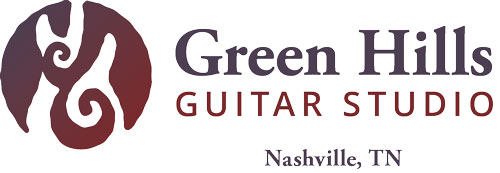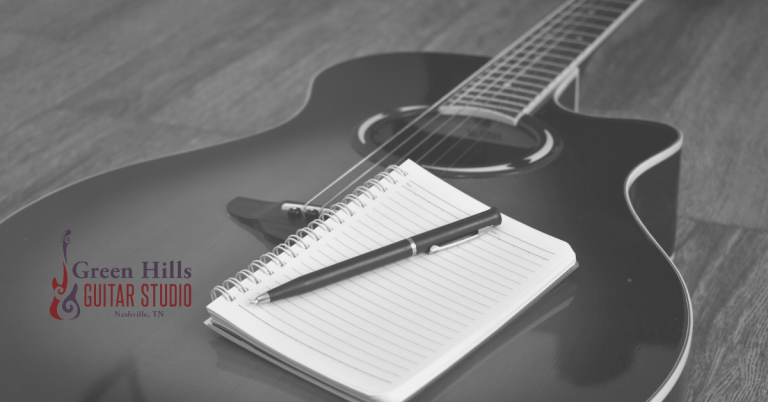How Nashville Songwriters Build Around the Hook
If you’re a songwriter—aspiring or seasoned—you’ve probably had this moment: you’re driving, minding your own business, and suddenly a phrase hits you like lightning. Three words. Maybe five. They don’t come with a melody or a chord progression. They come with a feeling. A question. A direction.
Congratulations! You’ve just found a title—and for many professional songwriters, especially in the Nashville scene, that’s where the real work begins.
In this article, we’ll explore why starting with a title isn’t just common practice in Music City—it’s often the foundation of songs that go on to define careers. We’ll walk through how to build from a title, how to test if a title has legs, and how to craft hooks that resonate.
Whether you’re writing solo or stepping into your first co-write, this method is one of the most powerful tools you can have in your songwriting kit.
Why Song Titles Matter: The Power of the First Line
Titles aren’t just labels. In the world of professional Nashville songwriters, the title often is the song. It’s the thesis statement, the emotional anchor, and often, the last line of the chorus.
Why does this matter? Because the title sets listener expectations. It plants a seed. A good title builds curiosity and begs to be resolved. Think about titles like:
- “The House That Built Me”
- “Before He Cheats”
- “Live Like You Were Dying”
These aren’t just phrases. They’re concepts wrapped in emotional tension. And they tell you where the song is headed before you’ve heard a single note.
What Makes a Good Song Title (And What Doesn’t)
Not every phrase that pops into your head will make a strong title. A solid title has a few defining traits:
- Memorability: Short enough to remember, unique enough to stand out.
- Emotional pull: It implies a story, emotion, or point of view.
- Conceptual clarity: You can instantly picture what the song could be about.
Compare “Falling Slowly” to something vague like “Feelings in the Wind.” One opens a door. The other floats away.
Pro Tip: When in doubt, run the title through the bar test. Say it aloud and imagine someone hearing it for the first time at a bar or open mic. Does it make them turn their head—or tune out?
Start Using a “Hook Book”
Many working Nashville songwriters swear by their “hook book”—a running list of potential titles, phrases, and concepts stored in a notebook or phone. It’s their idea vault.
During a co-write, it’s common to start a session by flipping through the hook book and offering up lines like:
“I’ve got this title: ‘Secondhand Halo.’ Want to mess with it?”
From there, the group explores the possible meanings. Is it ironic? Is it sincere? Could it be upbeat or melancholy?
The beauty of starting with a hook is that it focuses the writing session from the jump. It provides a North Star—guiding the melody, lyric choices, and arrangement.
From Title to Chorus: Building Out the Concept
Once you’ve chosen a title that feels rich with possibility, the next step is fleshing it out. Here’s a breakdown of how many pros work:
1. Define the emotional core
Ask: What is the emotional payoff of this title? Is it a warning, a confession, a celebration?
2. Explore narrative angles
Does the title suggest a first-person story? A character sketch? A twist?
Take “Girl Crush”—it sounds like a lighthearted pop track, but it’s actually a ballad about jealousy and obsession.
3. Draft the chorus around the title
Most Nashville writers will try to land the title at the end of the chorus—where it feels earned.
Start sketching:
“Every time I drive past that old cafe,
I see your ghost through the windowpane,
I thought I let go, but then I feel the same…
In the house that built me.”
The title resolves the emotional arc. It doesn’t explain—it concludes.
Exercises: Write 5 Songs Starting with Just a Title
Ready to try it yourself? Here are a few songwriting prompts. Don’t worry about perfect lyrics—just explore the concept each title suggests:
- “Back Porch Alibi”
- “Almost Said I Love You”
- “Whiskey Confession”
- “No Second Verse”
- “Moonlight Don’t Lie”
Choose one and write a chorus. Ask yourself: where does this title want to live?
The Nashville Edge (Even If You’re Not Writing Country)
You don’t need to write country music to benefit from this approach. Title and hook-driven songwriting is just as effective in pop, folk, Americana, and even rock. But in Nashville, it’s particularly honed because of the city’s co-writing culture.
Writers here often show up to a session with a few killer titles and a willingness to build from there. It’s collaborative. Intentional. And it often results in songs that hit harder and connect faster.
The Coda: The Title is a Promise
When you lead with a title, you’re making a promise to your listener: Stick with me, and I’ll deliver something that means something.
That promise—when honored—turns casual listeners into fans. And it’s one of the clearest paths from inspiration to a finished, pitch-ready song.
So keep a hook book. Lead with a title. And don’t be afraid to write the same one three different ways until it finally lands.
Want to Go Deeper Into Your Songwriting?
At Green Hills Guitar Studio, we offer personalized songwriting lessons tailored to your goals—whether you’re chasing your first finished song or preparing a pitch for an artist session.
Our Nashville-based instructors combine music theory, lyric craft, and industry insight to help you write with confidence and clarity.
Book your first lesson today and learn how to turn your ideas into finished songs that say exactly what you mean.







